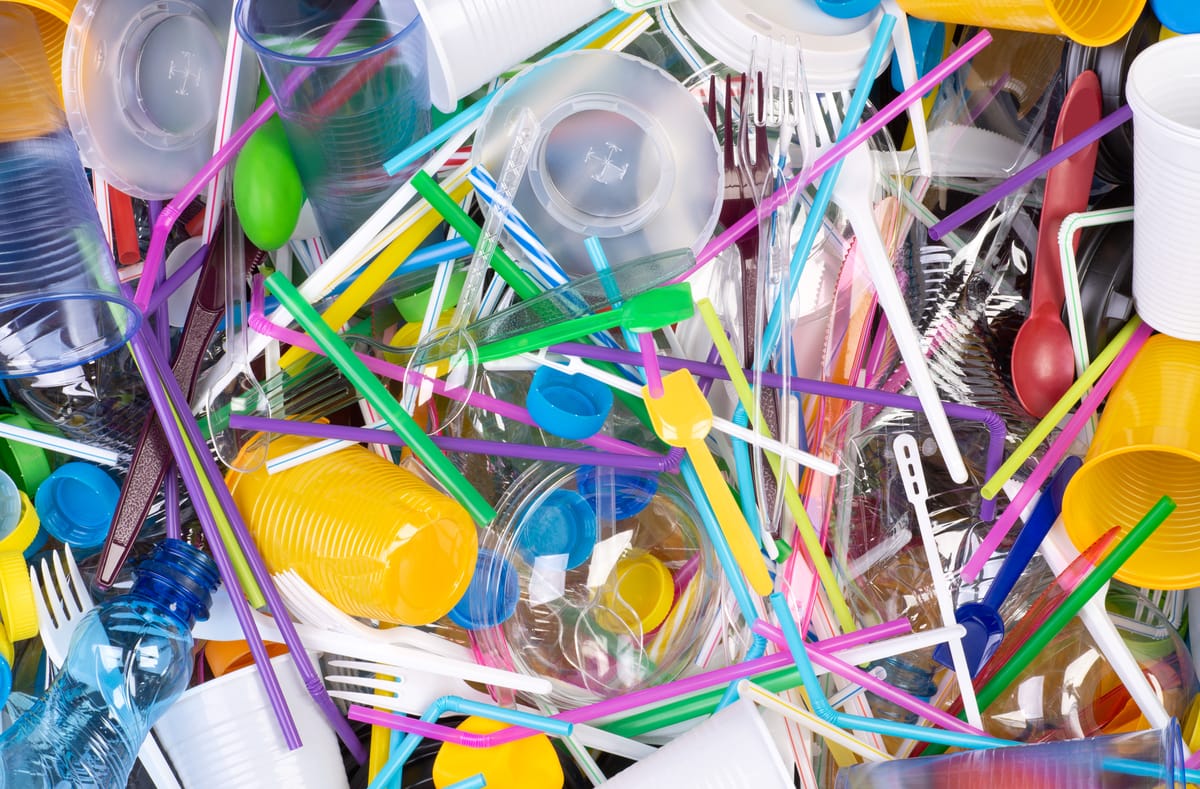In this week's brief, we're looking at the White House's plan to phase out single-use plastics, the slowing rate of carbon emissions in China, and commitments from major shipping companies to scale ammonia supply.
White House announces plan on plastics: The Biden Administration announced plans to phase out purchases of single-use plastics and release stricter regulations on plastic manufacturing. The federal government will phase out single-use plastics for food, events, and packing by 2027 and all single-use plastics by 2035. The announcement from the White House comes as negotiators are working to advance an international treaty to address plastics, which are expected to quadruple in production by 2050, with an estimated 40% for single-use.
EV charging stations continue to scale: The number of public-facing, fast-charging stations for EVs in the United States increased by 9% in three months, bringing the total to nearly 9,000 across the country. If the pace continues, there will be more fast-charging sites than gas stations in the United States within about eight years. Operators across North America will spend $6.1B on charging infrastructure in 2024, double their investment last year, according to BloombergNEF estimates. While there has been a slowdown in EV demand in the United States, the International Energy Agency estimated earlier this year that EV sales in the US will reach 2.5M in 2025, up from 1.1 million last year.
China on track for emissions decline: China is on track for its first annual decline of CO2 emissions since 2016 as coal use plunges and oil consumption contracts. If this trend continues, China could reach peak emissions ahead of its 2030 goal.
“The important thing to understand is that when China’s emissions stop growing, it likely follows that the world’s stop growing, too.” - Dave Jones, Global Insight Director of Ember in the New York Times
Sam Altman bets big on fusion: Sam Altman's largest personal investment is in Helion Energy, a startup aggressively working to advance nuclear fusion, which Altman believes is key to enabling the future of artificial intelligence. In 2021, Altman invested $375 million in the company, which plans to open the world's first fusion power plant by 2028 for Microsoft. Some backers of the technology and employees at the company question whether that timeline is actually feasible given the decades of slower progress in the industry.
A big battery project in Texas: Intersect secured $837M in debt and equity to build three giant battery storage projects with 258 Tesla Megapack batteries in Texas. These battery storage units can provide enough power for nearly 400,000 homes for two hours. The batteries store solar power during the day and then sell power back during peak usage at night. Tax credits will cover half of the cost of the Texas projects.
Saudi Arabia closes in on wind turbine plant: Saudi Arabia's Public Investment Fund and China's second-largest wind turbine manufacturer Envision Energy are nearing a deal to build a wind turbine manufacturing plan in Saudi Arabia to boost local production.
Shipping companies commit to ammonia: Maersk, two Greek shipping magnates, and two Japanese lines have collectively ordered $16B worth of tankers to transport ammonia. The fuel is made by combining nitrogen with hydrogen, and the shipping industry views it as critical to transitioning off fossil fuel. Production of green and blue ammonia is projected to grow to about 200,000 barrels a day in 2027 – which amounts to only about 0.2% of global oil demand.


